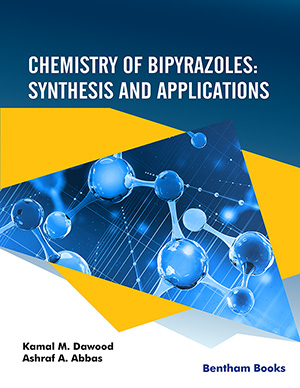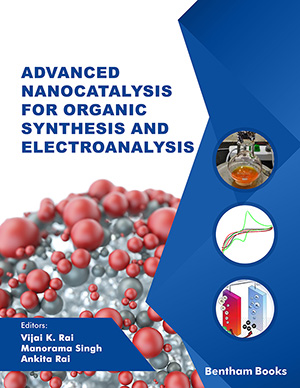
Abstract
The fruit of Cnidium monnieri (L) Cusson is an important traditional medicine employed in Taiwan and China as the treatments of impotence, sterilization, renal disease, dermatosis, colpitis, inflammation and gynecological disease. Peroxisome Proliferator-activated Receptor γ (PPARγ) and Farnesoid X receptor (FXR) are the members of nuclear receptor superfamily that have been targeted for developing treatments for chronic liver diseases. In this study, the furocoumarins isolated from the fruit of Cnidium monnieri (L) Cusson were evaluated for their PPARγ and FXR agonism. Indeed, in transient transfection reporter assays, these furocoumarins transactivated PPARγ and FXR to respectively modulate promoter action including ABCA1 and SHP promoters in dose-dependent manner. Through the molecular modeling docking studies these furocoumarins were shown to bind to PPARγ or FXR ligand binding pocket fairly well. All these results indicate that Cnidium monnieri (L) Cusson might possess therapeutic effects through the activation of PPARγ and FXR pathways.
Keywords: Farnesoid X receptor (FXR), furocoumarin, nuclear receptors, PEPCK, peroxisome proliferator-activated receptor γ (PPARγ), transient transfection receptor assays.
Mini-Reviews in Organic Chemistry
Title:Furocoumarins from Cnidium monnieri Act as Peroxisome Proliferatoractivated R and Farnesoid X Receptor Agonists
Volume: 13 Issue: 2
Author(s): Hsiang-Ru Lin
Affiliation:
Keywords: Farnesoid X receptor (FXR), furocoumarin, nuclear receptors, PEPCK, peroxisome proliferator-activated receptor γ (PPARγ), transient transfection receptor assays.
Abstract: The fruit of Cnidium monnieri (L) Cusson is an important traditional medicine employed in Taiwan and China as the treatments of impotence, sterilization, renal disease, dermatosis, colpitis, inflammation and gynecological disease. Peroxisome Proliferator-activated Receptor γ (PPARγ) and Farnesoid X receptor (FXR) are the members of nuclear receptor superfamily that have been targeted for developing treatments for chronic liver diseases. In this study, the furocoumarins isolated from the fruit of Cnidium monnieri (L) Cusson were evaluated for their PPARγ and FXR agonism. Indeed, in transient transfection reporter assays, these furocoumarins transactivated PPARγ and FXR to respectively modulate promoter action including ABCA1 and SHP promoters in dose-dependent manner. Through the molecular modeling docking studies these furocoumarins were shown to bind to PPARγ or FXR ligand binding pocket fairly well. All these results indicate that Cnidium monnieri (L) Cusson might possess therapeutic effects through the activation of PPARγ and FXR pathways.
Export Options
About this article
Cite this article as:
Lin Hsiang-Ru, Furocoumarins from Cnidium monnieri Act as Peroxisome Proliferatoractivated R and Farnesoid X Receptor Agonists, Mini-Reviews in Organic Chemistry 2016; 13 (2) . https://dx.doi.org/10.2174/1570193X13666160225001215
| DOI https://dx.doi.org/10.2174/1570193X13666160225001215 |
Print ISSN 1570-193X |
| Publisher Name Bentham Science Publisher |
Online ISSN 1875-6298 |
Call for Papers in Thematic Issues
Active Alkaloids: Structure, Mechanism of Action, Chemical Synthesis, and Biosynthesis
The scope of this topic encompasses the structure, mechanism of action, chemical synthesis, and biosynthesis of active alkaloids. Alkaloids, a class of nitrogen-containing organic compounds with alkaline properties, originate from a diverse array of sources. Many alkaloids exhibit significant biological activities and serve as key constituents in numerous medicinal plants. ...read more
Advancement in Petroleum Geochemistry
The scope of the thematic issue on advancements in petroleum geochemistry encompasses a broad range of cutting-edge research and technological innovations. This issue aims to highlight the latest developments in understanding the chemical and physical properties of petroleum and its geological formations. Key areas of focus include: Unconventional Resources: Exploring ...read more
Advances in Sustainable Synthesis and Applications of Cyclic Carbonates: From Green Chemistry to Advanced Materials
Cyclic carbonates have become a focus of attention because of their potential in sustainable chemistry, energy solutions, and advanced materials. Recent breakthroughs in their synthesis emphasize the use of CO₂ as a renewable feedstock, which is a step toward reducing carbon emissions. New catalytic processes, including both traditional metal catalysts ...read more
Applications of Molecular Descriptors in Physicochemical Properties Research of Organic Compounds
Chemical graph theory is concerned with all aspects of the application of graph theory to various areas of chemistry, including organic, theoretical, mathematical, and computational chemistry, as well as in bioinformatics and computational biology. By the use of the term chemical it is emphasized that one is allowed in chemical ...read more
Related Journals
 32
32 2
2
- Author Guidelines
- Graphical Abstracts
- Fabricating and Stating False Information
- Research Misconduct
- Post Publication Discussions and Corrections
- Publishing Ethics and Rectitude
- Increase Visibility of Your Article
- Archiving Policies
- Peer Review Workflow
- Order Your Article Before Print
- Promote Your Article
- Manuscript Transfer Facility
- Editorial Policies
- Allegations from Whistleblowers
Related Articles
-
Increased Severity of Acute Cerebral Ischemic Injury Correlates with Enhanced Stem Cell Induction as well as with Predictive Behavioral Profiling
Current Neurovascular Research Patents on Therapeutic and Cosmetic Applications of Bioactives of Crocus Sativus L. and their Production through Synthetic Biology Methods: A Review
Recent Patents on Biotechnology A2B Receptor Ligands: Past, Present and Future Trends
Current Topics in Medicinal Chemistry Drug Development for Central Nervous System Diseases Using In vitro Blood-brain Barrier Models and Drug Repositioning
Current Pharmaceutical Design Ghrelin Receptor Signaling: A Promising Therapeutic Target for Metabolic Syndrome and Cognitive Dysfunction
CNS & Neurological Disorders - Drug Targets Role of Resveratrol in Modulating microRNAs in Human Diseases: From Cancer to Inflammatory Disorder
Current Medicinal Chemistry Natural Products and Cancer Stem Cells
Current Pharmaceutical Design Heat Shock Proteins in Diabetes and Wound Healing
Current Protein & Peptide Science Myogenic Tone as a Therapeutic Target for Ischemic Stroke
Current Vascular Pharmacology Recent Advances and Patents on Coronary Sinus Perfusion Devices for Treatment of Heart Disease
Recent Patents on Biomedical Engineering (Discontinued) Proinflammatory Cytokines and Chemokines in Neonatal Brain Damage
Current Pediatric Reviews Calcium Signalling and Reactive Oxygen Species in Non-Excitable Cells
Mini-Reviews in Medicinal Chemistry Mechanisms Underlying Beneficial Health Effects of Tea Catechins to Improve Insulin Resistance and Endothelial Dysfunction
Endocrine, Metabolic & Immune Disorders - Drug Targets Patent Selections
Recent Patents on Cardiovascular Drug Discovery Beneficial Effects of Herbs, Spices and Medicinal Plants on the Metabolic Syndrome, Brain and Cognitive Function
Central Nervous System Agents in Medicinal Chemistry Role of Innate Immune System in Inflammation and Cardiac Remodeling After Myocardial Infarction
Current Vascular Pharmacology Anti-Inflammatory Iridoids of Botanical Origin
Current Medicinal Chemistry Update on the Important New Drug Target in Cardiovascular Medicine – the Vascular Glycocalyx
Cardiovascular & Hematological Disorders-Drug Targets Effects of Hydrogen-rich Water on the PI3K/AKT Signaling Pathway in Rats with Myocardial Ischemia-reperfusion Injury
Current Molecular Medicine Cell Therapy in Solid Organ Transplantation
Current Gene Therapy























